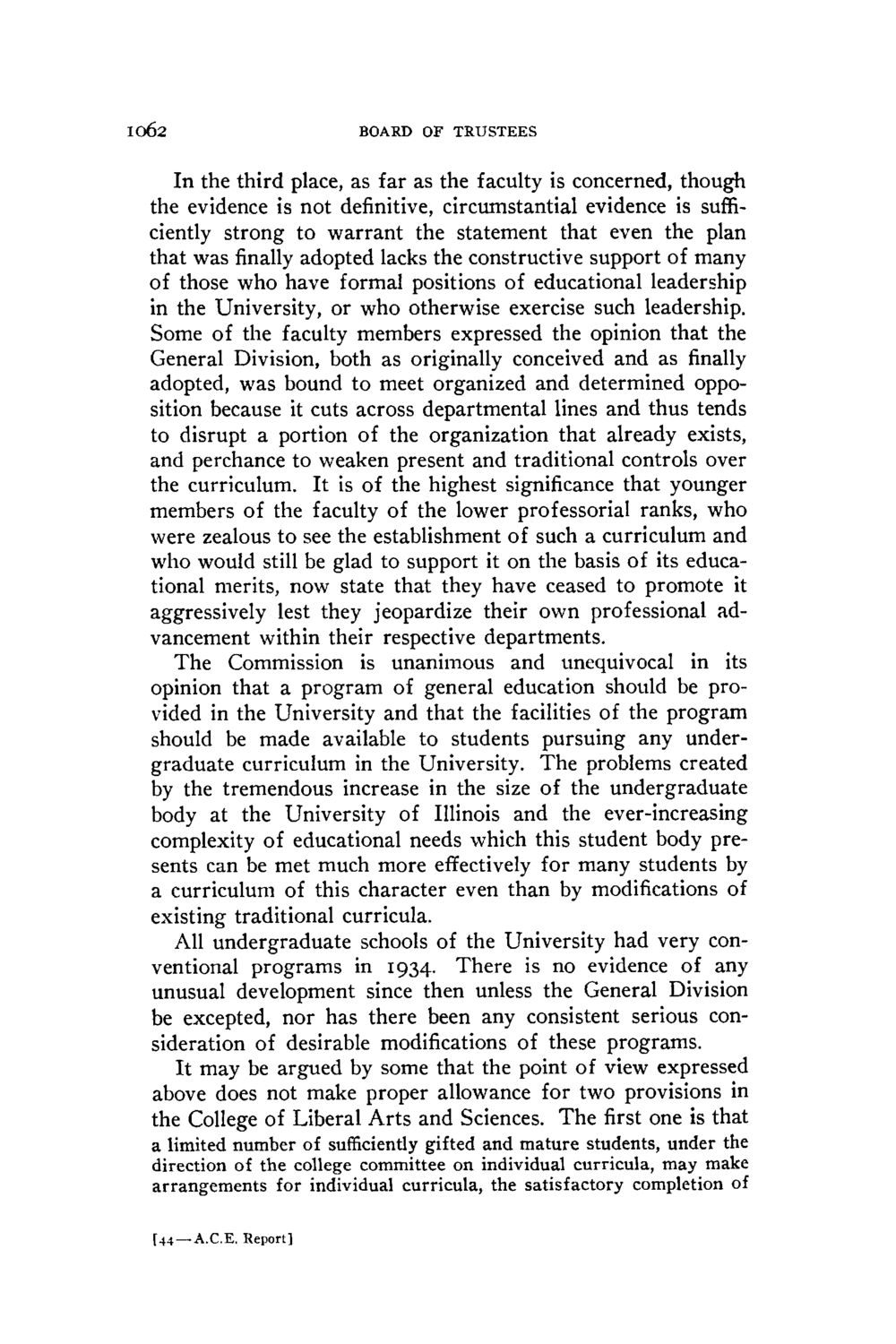| |
| |
Caption: Board of Trustees Minutes - 1944
This is a reduced-resolution page image for fast online browsing.

EXTRACTED TEXT FROM PAGE:
1062 BOARD OF T R U S T E E S In the third place, as far as the faculty is concerned, though the evidence is not definitive, circumstantial evidence is sufficiently strong to warrant the statement that even the plan that was finally adopted lacks the constructive support of many of those who have formal positions of educational leadership in the University, or who otherwise exercise such leadership. Some of the faculty members expressed the opinion that the General Division, both as originally conceived and as finally adopted, was bound to meet organized and determined opposition because it cuts across departmental lines and thus tends to disrupt a portion of the organization that already exists, and perchance to weaken present and traditional controls over the curriculum. It is of the highest significance that younger members of the faculty of the lower professorial ranks, who were zealous to see the establishment of such a curriculum and who would still be glad to support it on the basis of its educational merits, now state that they have ceased to promote it aggressively lest they jeopardize their own professional advancement within their respective departments. The Commission is unanimous and unequivocal in its opinion that a program of general education should be provided in the University and that the facilities of the program should be made available to students pursuing any undergraduate curriculum in the University. The problems created by the tremendous increase in the size of the undergraduate body at the University of Illinois and the ever-increasing complexity of educational needs which this student body presents can be met much more effectively for many students by a curriculum of this character even than by modifications of existing traditional curricula. All undergraduate schools of the University had very conventional programs in 1934. There is no evidence of any unusual development since then unless the General Division be excepted, nor has there been any consistent serious consideration of desirable modifications of these programs. It may be argued by some that the point of view expressed above does not make proper allowance for two provisions in the College of Liberal Arts and Sciences. The first one is that a limited number of sufficiently gifted and mature students, under the direction of the college committee on individual curricula, may make arrangements for individual curricula, the satisfactory completion of [44 —A.C.E. Report]
| |